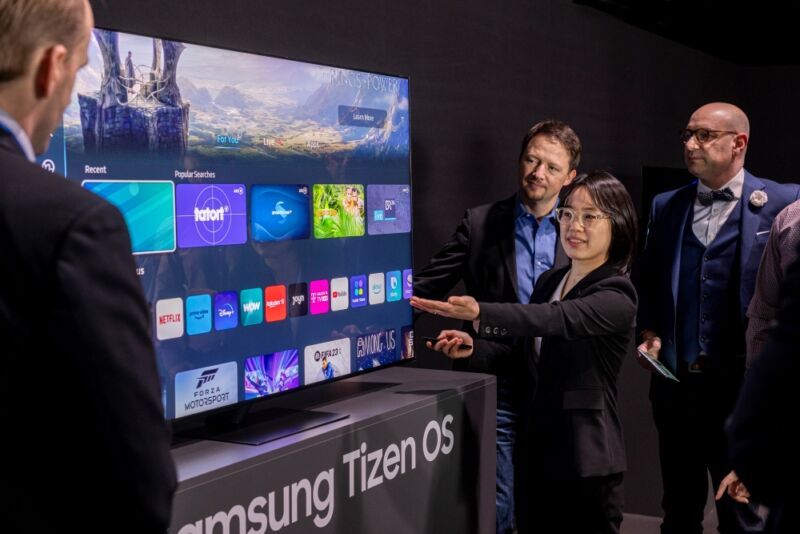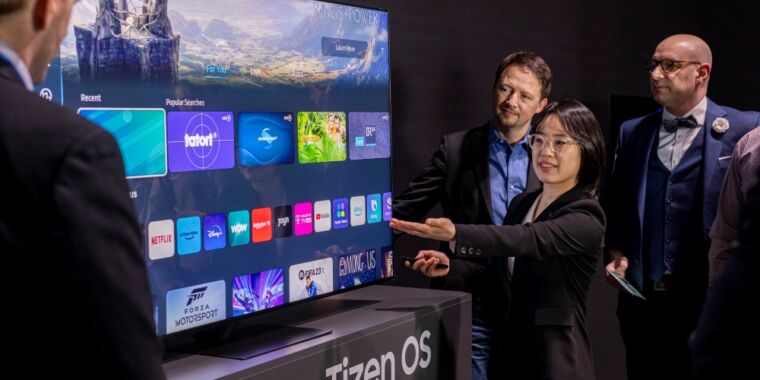
Samsung
Samsung will provide operating system updates for its newer TVs for at least seven years, the company said last week. The updates will initially apply to some TVs that launch in 2023, as well as TVs that launch in March 2024.
According to Business Korea, Samsung made the announcement about the Tizen operating system at the Digital Research Lab of Samsung Electronics’ Suwon Campus in Gyeonggi Province. As FlatPanelsHD discovered, the announcement follows previously announced plans by Samsung to provide seven years of software updates for the Galaxy S24 series of smartphones.
According to Korea Economic Daily, Yoon Seok-Yoon, president of Samsung Electronics’ Visual Display Business Division, said at the event last week: “With the seven-year free Tizen upgrade for AI TVs, we will widen the market share gap with Chinese companies.”
Samsung is the world’s largest smart TV seller, but rival companies from China are close behind. According to figures from Omdia, Samsung’s TV market share (based on units shipped) fell from 20.3 percent in the first quarter of 2023 to 18.8 percent in the first quarter of 2024. Chinese brand TCL’s market share, meanwhile, rose from 9.8 percent to 11.6 percent (LG’s market share remained almost unchanged at 11.8 percent in the first quarter of 2024).
Competition in the market has become so fierce that the South Korean government reportedly pushed rivals Samsung and LG to collaborate so they could remain competitive, resulting in Samsung selling TVs that use OLED panels made by LG Display.
Samsung has not provided a specific list of models guaranteed to receive seven years of updates, but the company’s announcement suggests that the news applies to TVs with AI-based features that came out in the aforementioned release period. (Samsung has been touting the term “AI TVs” recently, and also says that building AI features is also a way for the company to compete with Chinese brands.)
A step in the right direction
Samsung’s commitment to upgrades comes amid growing concerns about e-waste and expensive products suddenly stopping receiving software updates, which can lead to limited functionality, slow operation or errors.
Research suggests that the average TV lasts around seven years. However, as UK consumer group Which? found, the average TV brand offers software updates for less than seven years. With Samsung being the world’s biggest TV brand, longer-term software support could encourage others in the industry to do the same. It could also help users keep their sets for longer. Samsung’s seven-year commitment is longer than what LG recently announced, which was four operating system updates over five years (LG’s webOS update schedule can be found here).
Other TV hardware makers are faring better, however. Apple has been providing updates for its first Apple TV since 2015, as FlatPanelsHD pointed out, while Roku still provides operating system updates for Roku OS-based TVs that launched in 2014. In general, though, TV OEMs and streaming device makers could make it easier for potential buyers to find out how long a device will continue to receive software updates before they buy.

